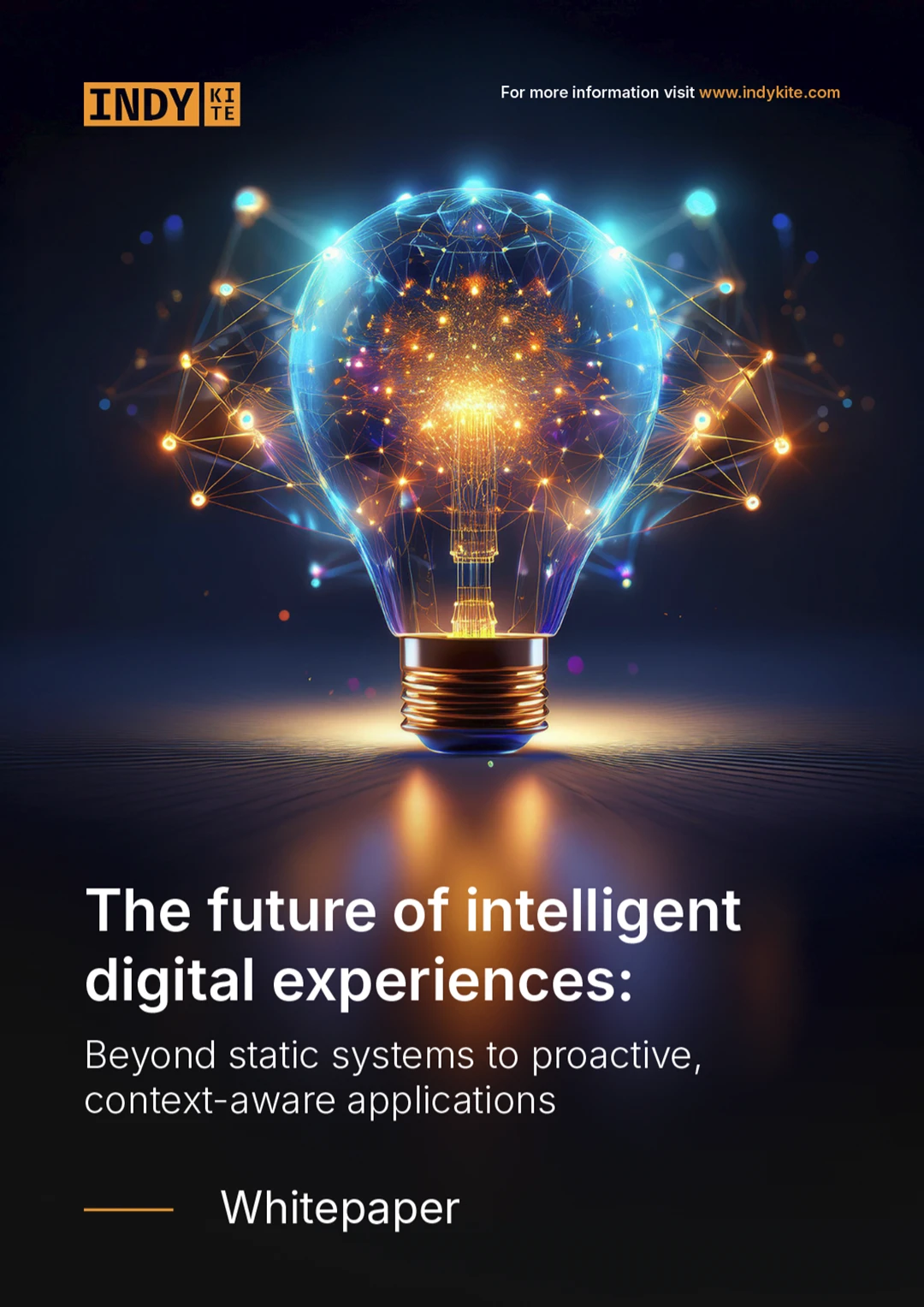Making predictions about the future of data and AI is always a challenge - especially in a landscape that evolves as quickly as this one. What seems groundbreaking today may be outdated tomorrow, and what we think we know often changes in the blink of an eye. However, one thing is clear: the way businesses use data is already changing and will continue to evolve through 2025. Driven by AI, automation, and smarter tools, enterprises are moving beyond simply managing data - they are beginning to actively harness it to make real-time decisions, spark innovation, and fuel growth.
While we can’t predict every twist and turn, we can be certain that the future of data will be faster, more intuitive, and more transformative than ever before.
According to Gartner, by 2028, fragmented data management markets will converge into a unified ecosystem powered by data fabric and GenAI, reducing technology complexity, lowering integration costs, and enabling more cohesive data environments1. As part of this shift, unified platforms will become essential, offering critical visibility into data infrastructure performance, quality, and compliance. By simplifying how data is consumed, GenAI will play a key role in this transformation, integrating and optimizing the core elements of the data fabric. This will make data easier to access, engage with, and manage. Additionally, by automating anomaly detection and providing real-time insights, these platforms will enhance data reliability, streamline governance, and support secure, effective data management.
For businesses to stay competitive, they must embrace this shift by evolving their data strategies and adopting next-generation tools. Rather than managing disparate systems, tools, and platforms, businesses should consider how to access and use data in an integrated and seamless way. Platforms like IndyKite are helping organizations build dynamic data ecosystems where data is not only captured but also connected and controlled - so it can actively be used to drive business value. By leveraging AI, automation, and real-time insights, these solutions are enabling companies to bridge the gap from raw data to insights to action - turning data into a true strategic asset.
The role of AI and automation
Looking ahead to 2027, AI assistants and AI-enhanced workflows will play an important role in reshaping how businesses manage their data. Gartner also predicts that AI integration will reduce manual intervention by 60% - a dramatic shift that will empower organizations to embrace self-service data management1. This transformation will allow teams to work more efficiently and independently, as AI-driven tools automate routine tasks, freeing up valuable time for higher-level, strategic work.
Businesses that adopt AI-enhanced workflows will be able to streamline their processes, reduce human error, and improve overall efficiency. These tools won’t just simplify data management - they’ll make it more accessible for employees at all levels. From data scientists to business users, the ability to query, analyze, and act on data quickly can be a game-changer.
From complex queries to simple conversations
The increasing reliance on AI will also simplify how we interact with data. It is likely that soon natural language will become the dominant method to query and interface with existing data management ecosystems, leading to a tenfold improvement in data consumption. With NLP, employees will no longer need specialized training or complex queries to extract meaningful insights from data. They’ll simply ask questions in natural language, just as they would when conversing with a colleague.
This shift improves data accessibility across the organization, enabling individuals at all levels, regardless of their technical expertise, to leverage data effectively. As a result, businesses will become more agile, with a wider range of employees able to quickly access and act on data-driven insights. This easier, more intuitive interaction with data will enable organizations to make better, faster decisions.
The future of data is here - and it’s accelerating
As we move through 2025, businesses are already experiencing a shift in how they use and manage data. While these are predictions - the transformation occurring around AI, automation, and unified data systems isn’t theoretical - it’s quickly becoming essential for organizations that want to stay competitive.
The key to success in this evolving landscape will be adaptability. Businesses must embrace next-generation tools and strategies to manage data more effectively and turn it into a strategic asset that drives growth. The shift towards unified, AI-ready data management architectures will help organizations streamline operations, reduce complexity, and ultimately enable more efficient data consumption. As businesses increasingly integrate these systems, they will be positioned to make data-driven decisions faster and more confidently, leveraging data’s full potential for innovation and competitive advantage.
This evolution - from managing disparate systems to creating a unified, agile infrastructure - will be essential to unlocking the true value of data in the coming years.
Inspired by the future of data management? Learn how IndyKite is empowering major enterprises to transform the way they use data, leveraging AI, automation, and a unified approach to unlock the full potential of your organization.
1E. Zaidi, R. Thanaraj, A. Ronthal, ‘Predicts 2025: 4 Ways AI Will Disrupt Data Management Markets and Solutions, Gartner, 9 December 2024 (accessed 7 January 2025).













